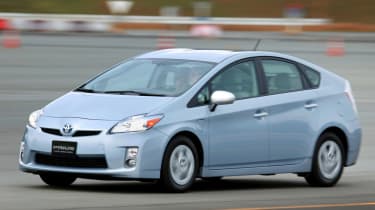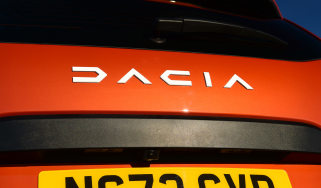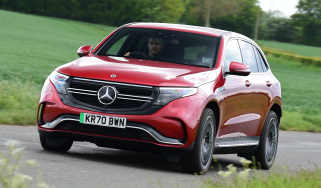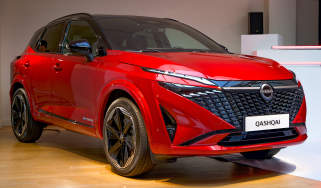Toyota Prius Plug-In
Hybrid top-seller is uprated to go further on electric power alone. Is it better than ever?
THE plug-In Prius doesn’t answer many criticisms of the standard hybrid, but as it can run on renewable electricity, it’s a better option. Drivers can’t switch to battery-only running themselves to ensure the cell lasts as long as possible. But if this is the future, it’s much more viable than battery-electric – which could leave you stranded by the roadside with no chance of continuing your journey.
Since the 1997 launch, Toyota has sold more than 1.5 million examples of the Prius. It’s now the world’s most common hybrid – and boosted by fuel prices, legislation and eco issues, its popularity is unlikely to diminish.
This plug-in version is the latest development of the petrol-electric pioneer. Toyota admits the appeal of the regular Prius is restricted by its limited range on battery power alone. Its thinking is that, by fitting a larger cell, the plug-in car can go further on electric only, and the petrol engine need never start. The system can then be recharged at night on cheaper and greener mains electricity.
Video: watch CarBuyer's video review of the Toyota Prius
[[{"type":"media","view_mode":"content_narrow","fid":"68431","attributes":{"alt":"","class":"media-image"}}]]
Initially, the firm will release limited numbers of lease-only vehicles so that it can monitor any problems, but we drove an early model to give our verdict.
More reviews
Car group tests
- Hyundai Ioniq vs Toyota Prius
- Hyundai Ioniq Plug-in vs Toyota Prius PHV
- Toyota Prius PHV vs Kia Optima PHEV vs VW Golf GTE
In-depth reviews
Long-term tests
Road tests
- New Toyota Prius 2023 review: the hybrid superstar now coming to the UK
- New Toyota Prius AWD 2019 review
- New Toyota Prius Plug-in hybrid 2017 review
Used car tests
Under the skin, the main difference between the plug-in Prius and the standard hybrid is the bigger battery and boosted electrical system. The 98bhp 1.8-litre four-cylinder petrol engine remains the same.
It claims a 10.9-second 0-62mph time and a 106mph top speed, plus an electric-only range of 12.5 to 20 miles. Using a 200V supply, the battery can be recharged in 100 minutes, while the equivalent of nearly 100mpg should be possible.
Inside is an energy monitor, an orange charge lamp and a preheating/precooling system for when the car is plugged in. Pulling away is as simple as in the standard Prius: engage Drive and press the accelerator. Be careful with your right foot and stay below 62mph, and the engine shouldn’t cut in. Even if it does, the switch from battery to petrol power is very smooth.
The ride is soft and compliant, and the handling unaffected by the battery’s extra weight. The engine drives the Prius directly or produces electricity, which either propels the car or charges the battery. Under braking, the alternator generates current to extend the electric-only range. Plus, the new set-up gives more overtaking grunt, and minimises the ‘rubber band’ feel usually associated with hybrids.



